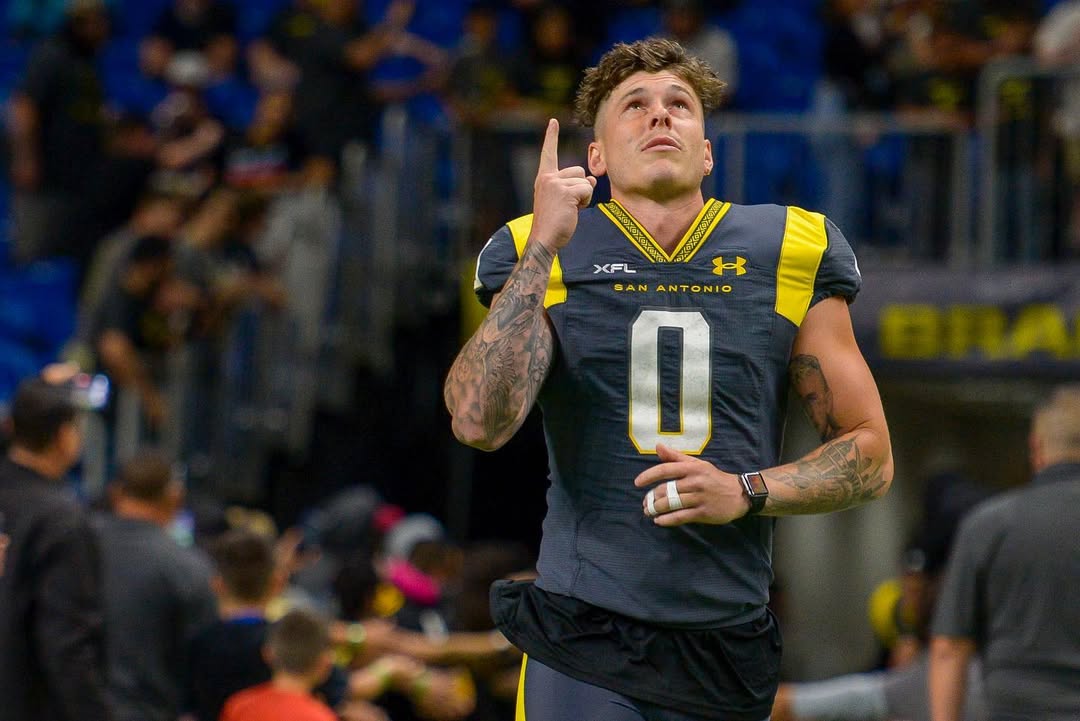It’s time to stop pretending as if homosexual athletes don’t exist — especially in football.
Research conducted in 2012 by Gallup shows that 3.4 percent of Americans identify themselves as gay, lesbian, bisexual or transgender.
There are 109 athletes listed on the LSU football team’s roster alone, and LSU has 14 other varsity sports teams. It would be an extraordinary statistical anomaly if there were no LGBT football players to ever play at LSU or no current homosexual athletes here.
Thus, the topic of homosexual athletes deserves some attention — and it’s gotten some recently.
Former LSU women’s basketball player Seimone Augustus is openly gay and has voiced her intention to marry her partner.
On Wednesday, No. 1 overall WNBA Draft pick Brittney Griner casually said she is a lesbian and received virtually no backlash.
In 2007, former NBA player John Amaechi became the first NBA player to speak openly about his homosexuality. It was met with mixed responses. Some players supported Amaechi, while others, such as former NBA player Tim Hardaway, expressed their uneasiness at the prospect of a gay teammate.
A football team’s locker room is a different beast than those of other sports, but it shouldn’t be that way. The perception of all football players as macho men and jocks is tired, and I would like to think the sport has moved past that.
In late March, CBS Sports reported a current gay NFL player is “strongly considering” coming out.
Multiple NFL players, including former New Orleans Saints linebacker Scott Fujita, have recently shown their support of gay rights. Another CBS Sports story that came out Thursday said an unnamed NFL player is homosexual, but not publicly “out,” and his teammates know. The story said they don’t care about the player’s sexuality, which is great.
But when players like Alfred Blue look at the possibility of homosexual teammates as having a “sissy” on the team, that bigoted culture rears its ugly head again and perpetuates falsities. Those misconceptions about homosexuals only make it more difficult for football, which may already be behind other sports in LGBT progress, to move forward and accept an openly gay player.
The first step in moving away from the unwelcoming nature of some sports toward the possibility of homosexual teammates is denying the naïve thought that there are no gay athletes. Homosexuality in athletics can no longer be treated as taboo if progress is to be made.
There’s a reason a Sports Information Director from LSU told a Daily Reveille reporter his interview with senior quarterback Zach Mettenberger was finished when the word “gay” came up. The Athletic Department was likely worried a player may say something insensitive about the controversial subject.
That’s the heart of the issue — many of these football players didn’t seem as if they had discussed or even considered the possibility of homosexual athletes in their sport. That is, until after the Athletic Department hand-picked LSU’s backup quarterback and kicker to speak to us.
This isn’t a call to “out” football players. I wasn’t convinced the issue of gay football players mattered until I heard how some players felt about the idea of a homosexual teammate.
The issue should be an afterthought for football players and all athletes and people — but first, it must be a thought.







